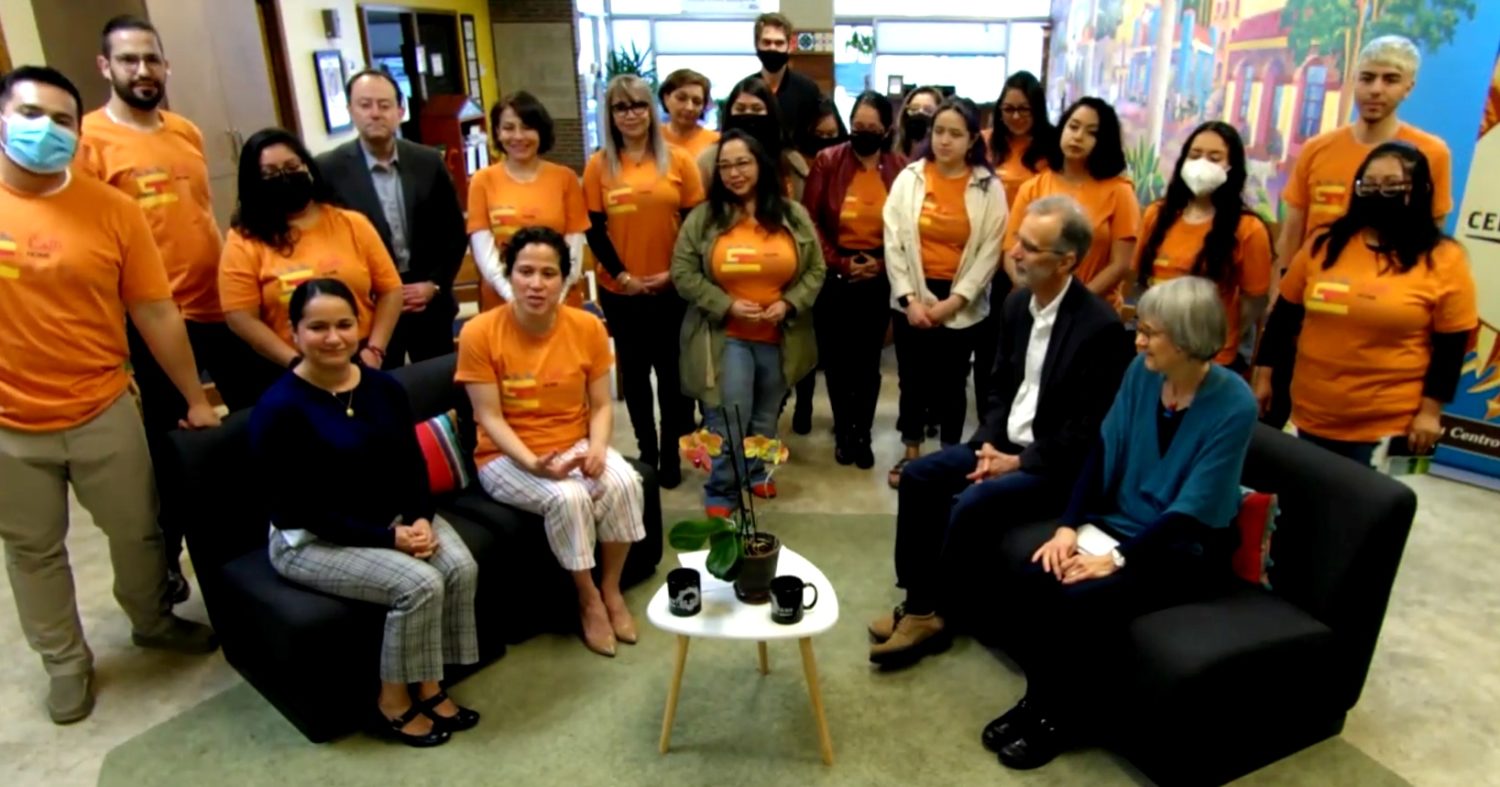
The Centro Hispano Annual Strategic Update, a chance to provide the greater community with an update on the non-profit agency’s work, was held virtually on Thursday.
Centro Hispano Executive Director Karen Menéndez Coller updated the community on the struggles the organization has seen through the pandemic but also the many triumphs including their work to increase their school partnerships, introduce new workforce programs and address housing support needs.
The Annual Strategic Update, which has been a tradition at Centro for almost a decade, was a chance to introduce Centro’s ‘new home’ to the community, a new building that will be located in the heart of the Burr Oaks neighborhood across the street from Lincoln Elementary School and just down the road from Centro’s current facility.
With the current Centro facility on Badger Rd. stretched to its maximum capacity, the new building will be coming at the perfect time. It is scheduled to open in 2023.
Centro also announced a $500,000 gift from the Rennebohm Foundation that brings their current fundraising total to just over $10 million. The agency recently received a $4.8 million grant from the State of Wisconsin Neighborhood Investment Program and has $5 million left to raise towards its goal. Campaign CENTRO aims to raise 15 million dollars by the end of 2023 when the agency will be celebrating its 40th anniversary.
At the Centro Hispano Annual Strategic Update, Centro staff had on matching orange shirts with the new Calli logo
“Calli is an old symbol on the Aztec calendar that represents home. Home is a place of nourishment, tranquillity, family, of love, of hope. It’s a place of purpose,” Menéndez Coller said. “It’s a place where you learn, where you thrive, and where you’re active and I want to say that we’re striving to create the most inclusive home. This is going to be a space that protects and contains and guards all of us.”
Menéndez Coller introduced a special guest, Sujhey Beisser, the assistant vice president of strategy and development for Park Bank who was also a board member at Centro for a decade and a former board chair.
“One of Centro’s strengths has always been its ability to adapt to the community it serves,” Beisser said. “We think back to 1983 when Centro started as a place for Cuban refugees to find a home where they could bridge the gap of language, where they could find a place to adapt to a new culture, and that that’s what center was based on at the time. But when you think about going through almost four decades later, Centro has always been able to adapt to what the community has needed.
“The community continues to grow and with the growth of the community, comes more needs for different programming and for more space,” she added. “So Centro has to again, as it has always been doing for almost four decades, adapt to what the community needs … and now is the time to do that.”
To learn more about the campaign CENTRO or make a gift, click here.



